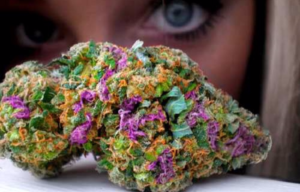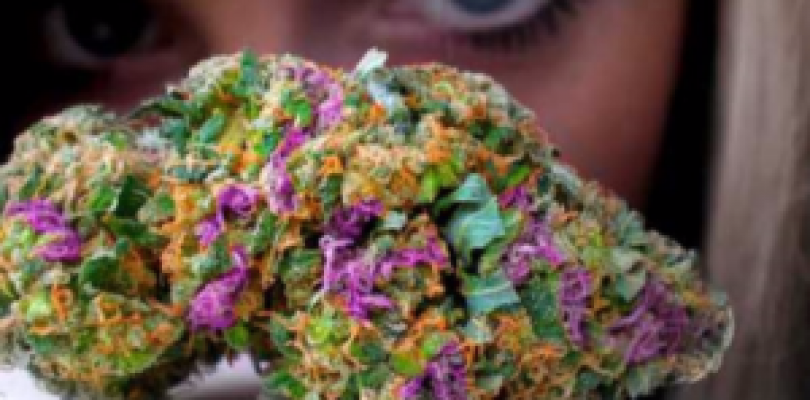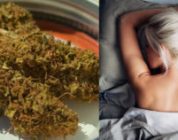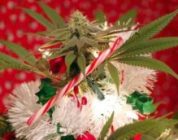 Bipolar Disorder isn’t just easily understood or diagnosed. There’s something quite illusive about its origins, symptoms as well as the treatment. It can be a devastating burden for some, and it should not be treated lightly or left to home remedies. It’s worth considering using cannabis strains and edibles for treatment.
Bipolar Disorder isn’t just easily understood or diagnosed. There’s something quite illusive about its origins, symptoms as well as the treatment. It can be a devastating burden for some, and it should not be treated lightly or left to home remedies. It’s worth considering using cannabis strains and edibles for treatment.
Bipolar Disorder manifests with symptoms like those of many other conditions. That’s among the problems with diagnose and treatment. The common description is of manic-depression events.
The National Institute of Mental Health identifies four forms:
 Bipolar I Disorder produces manic episodes lasting at least 7 days or manic symptoms so severe they require hospitalization. Depressive episodes last at least 2 weeks. It may even produce a mix of high and low events lasting for long periods of time.
Bipolar I Disorder produces manic episodes lasting at least 7 days or manic symptoms so severe they require hospitalization. Depressive episodes last at least 2 weeks. It may even produce a mix of high and low events lasting for long periods of time.- Bipolar II Disorder reveals as a pattern of depressive episodes and hypomanic episodes, not the full-blown manic episodes of Bipolar I.
- Cyclothymic Disorder (also called cyclothymia) has numerous periods of hypomanic symptoms as well numerous periods of depressive symptoms lasting for at least 2 years. But, the events do not reach the level described as Bipolar I or II.
- Specific and Unspecific Bipolar Related Disorders includes symptoms that do not match the three categories listed above.
Manic episodes are variously described as feeling very energetic and elated. But, friends and family see this behavior as wired and agitated, irritable and touchy, and prone to take risks.
Depressive episodes leave victims feeling sad and hopeless. They have little energy and trouble concentrating. They will sleep and eat too little or too much. And, they may think about death or suicide.
These are feelings we all have from time to time, but diagnosis depends on the degree of strength, severity, and longevity. The behaviors include fits noticed by others than the victims as clearly and significantly affecting their quality of life.
Diagnosis
Proper diagnosis takes a comprehensive approach. A general practitioner is not likely to recognize symptoms as part of routine care. But, if alerted, the GP can run tests to rule out physical disorders that could prompt similar symptoms.
The GP should, then, refer the problem to mental health professionals specializing in diagnosis and treatment of Bipolar Disorder. Their expertise and insight can better differentiate Bipolar Disorder from major unipolar depression, ADD/ADHA, psychosis, and substance abuse.
Causes
Steve Bressert, Ph. D., writing for PsychCentral, lists environmental, genetic, and medication factors as possible causes for Bipolar Disorder.
But, he also observes, “Bipolar disorder is primarily a biological disorder that occurs in a specific area of the brain and is due to the dysfunction of certain neurotransmitters, or chemical messengers, in the brain. These chemicals may involve neurotransmitters like norepinephrine, serotonin and probably many others. As a biological disorder, it may lie dormant and be activated on its own, or it may be triggered by external factors such as psychological stress and social circumstances.”
According to a case study at Psychiatry MMC, “Clinicians agree that cannabis [intoxication] can cause acute adverse mental effects that mimic psychiatric disorders, such as schizophrenia and bipolar disorder. Although there is good evidence to support this, the connections are complex and not fully understood.”
Treatment
 Practitioners treat Bipolar Disorder with cognitive therapy, individual and family counseling, interpersonal and social rhythm therapy, or hospitalization.
Practitioners treat Bipolar Disorder with cognitive therapy, individual and family counseling, interpersonal and social rhythm therapy, or hospitalization.
Pharmaceutical medications include Lithium, Olanzapine, Oxcarbazepine, Valproate, Risperidone, Tiagabine, and others. Some treat incidents; others treat long-term issues. They perform with varying degrees of success, and long-term research continues into their effectiveness, side-effects, and counter indications.
Cannabis may be able to address this neurological dysfunction. Its release of cannabinoid receptors matches the brain’s need to balance its naturally generated endocannabinoids, behaving much like serotonin and serotonin-reuptake receptors.
Cannabis strains favor Indica which calms and reduces anxiety and Sativa which stimulates and elevates mood. And, medical cannabis might be prescribed as part of an overall therapy plan for Bipolar Disorder.
Top 3 Indica Strains:
- Bubba Kush produces a heavy tranquilizing effect. Hints of chocolate and coffee add to the taste, and it leaves smokers with a full-bodied and full-brained dreamy heaviness, too much for most novices.
- Northern Lights is pure Indica and used in countless hybrids. Sweet but spicy, it has a strong psychoactive effect producing euphoria and relaxed laziness. But, it is not recommended for first time users.
- Grape Ape, with its pronounced grape taste, has a high THC content at 23% and low CBD at 0.07%. It leaves users relaxed, sleepy, and stress free.
Top 3 Sativa Strains:
- Sour D (Sour Diesel) produces fast-acting energetic effects that make users forget stress and depression, a top choice of medical marijuana patients for all kinds of conditions.
- Green Crack is pure Sativa (21% THC: 0.1% CBD) producing an energetic, uplifting, cerebral buzz throughout the day. The fruity taste and aroma makes it right for daytime use.
- Durban Poison is a legendary Sativa with an unfortunate diesel aroma. The high THC (25%) is energizing and stress relieving. It masks depression with a long-lasting effect.
Top 3 Edibles:
- Calendula Guava Mango Black Tea by Honey Pot is infused with canna-coconut oil. It low THC sooths stress and depression on a maintenance basis, easy to prepare and consume by newcomers, elderly, and the health-conscious.
- The Crescendo Collection by The Grow Foundry (dba Coda Signature) consists of six low-dosed truffles, each flavored richly and dosed with 10 milligrams of THC.
- Blueberry-Chamomile FlasQ™ by MarQaha is a flavorful beverage with 90 milligrams of Indica THC in each two-ounce “FlasQ.”
Disclaimer: Bipolar Disorder is a difficult to diagnose and difficult to treat disorder. It calls for review and observation by a team of medical professionals. While cannabis products and derivatives have proven helpful to many patients, marijuana and cannabis should not be used cavalierly. Even their abuse can lead to misdiagnosis and complications. Cannabis treatment should be limited to that approved by a consulting doctor.




